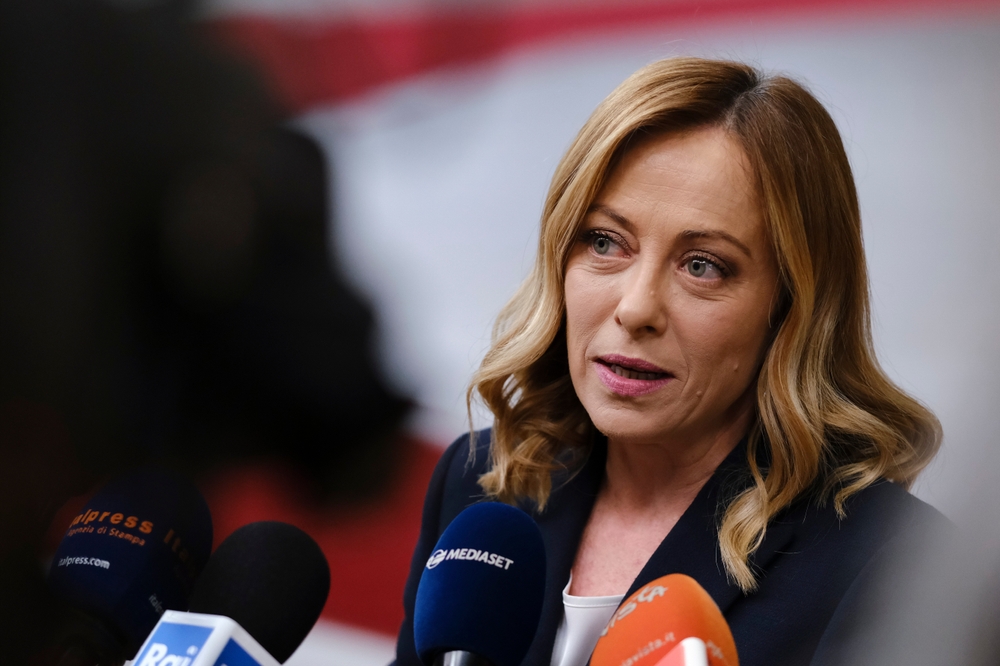Italian Prime Minister Giorgia Meloni is bracing herself for a new set of political challenges, expressing satisfaction with her party’s results in Liguria despite recent declines. Speaking on Porta a Porta, Meloni took aim at the unions, CGIL and UIL, accusing them of bias as they announced strikes on the same day President Mattarella lauded Italy’s economic growth. “They’re not looking at the substance,” she argued, emphasizing that union demands, even for a banking tax, had been met in the new budget plan. Her criticisms extended to Stellantis CEO John Elkann, accusing him of “disrespecting Parliament.”
Meloni’s frustrations were equally palpable toward the judiciary, especially regarding the recent court ruling from Bologna. “The tribunal’s statement is pure propaganda,” she asserted, before questioning Italy’s safety in managing migration: “At this rate, I may as well request a halt on all migrant arrivals, as we’re not a secure country.” Her language reflected not only her ire but a sense of victimization, as she claimed increased opposition was proof her government’s immigration strategy was working, while noting that traffickers had allegedly threatened her life.
The Premier is also shifting her political priorities. While previously focused on establishing a presidential system, Meloni is now accelerating efforts to separate judicial and prosecutorial roles, aiming for a 2025 referendum on the issue. With her party divided on election law reform, Meloni hinted that settling scores with the judiciary might take precedence over constitutional changes.
In her first post-Liguria appearance, Meloni appeared relatively restrained toward opposition leaders, admitting the coalition’s dominance in recent regional elections. She called on the Democratic Party (PD) to weigh in on the European Socialists’ opposition to Raffaele Fitto’s vice-presidential nomination, suggesting Schlein’s support could smooth over the tension.
As for concerns about data privacy, Meloni emphasized that internal breaches, not hackers, are the core issue. “Infidelity among officials and oversight failures are to blame,” she insisted, urging severe responses. Wrapping up, Meloni brushed aside concerns about the U.S. election’s impact on Italy, stating a Trump win would not alter her strategy, hinting that her close ties to Elon Musk may be an asset should the geopolitical landscape shift.

